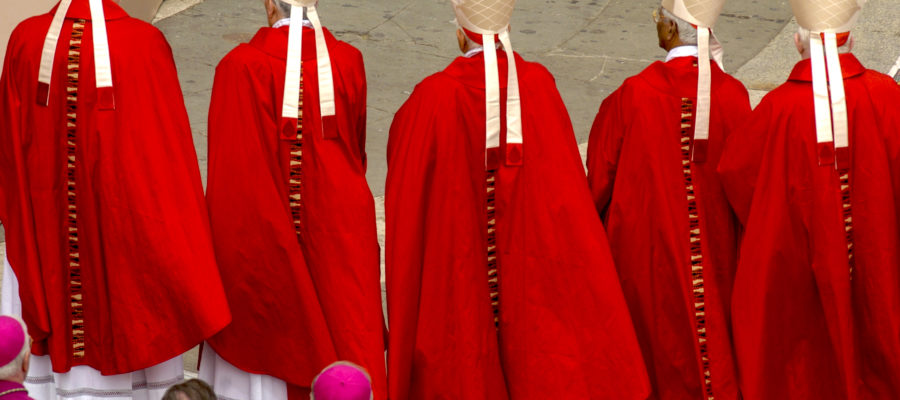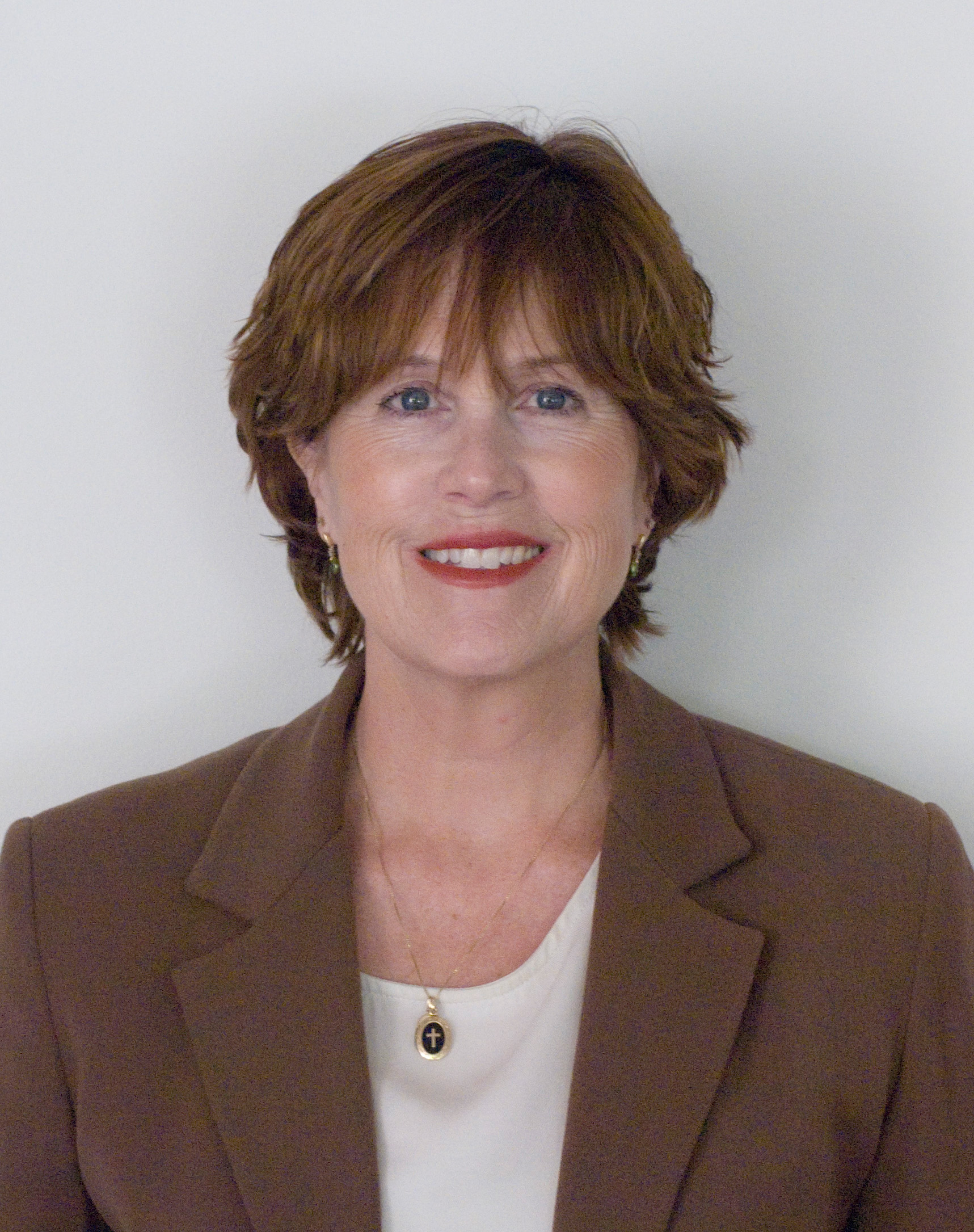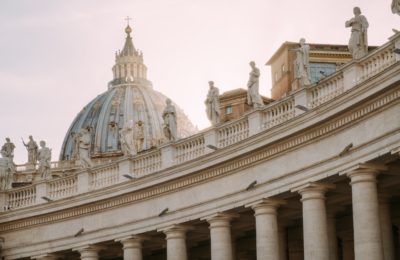Testimonies for the Synod – Dr. Deborah Savage
October 17, 2018 | Published first in First Things: Letters from the Synod
LETTERS FROM THE SYNOD-2018: #9
REPORTS AND COMMENTARY, FROM ROME AND ELSEWHERE, ON THE XV ORDINARY GENERAL ASSEMBLY OF THE SYNOD OF BISHOPS
TESTIMONIES FOR THE SYNOD
Dr. Deborah Savage is Professor of Philosophy and Theology and Director of the Master of Pastoral Ministry Program at the St. Paul Seminary School of Divinity in the University of St. Thomas, St. Paul, Minnesota. Asked by LETTERS FROM THE SYNOD for a reflection on the Synod’s theme of “Youth, the Faith, and Vocational Discernment,” Dr. Savage responded with the following open letter to the bishops at Synod-2018. XR II
Dear Bishops,
I write to you with a real and fearful sense of urgency. Like a child who runs to her father when danger looms or confusion besets her, I write to plead with you on behalf of all your children—especially the youth you have gathered together for these days in Rome, but also on behalf of their friends, their peers, and their families. I write in the name of those who, like you, are tasked with guiding them. We are their parents, their teachers, their ministers and priests. I write to you now, bishops, because we need your help. Our children are drowning and we seem unable to do anything about it.
In the Instrumentum Laboris that set the stage for your deliberations at the Synod, I note that you affirm a point the Holy Father has made several times—that “[r]ealities” are greater than ideas.” I have to admit that I am actually not sure what this means, since my understanding is that ideas proceed from a prior encounter with reality itself. Indeed, I have been taught that the measure of the truth of human knowledge is the extent to which it conforms to reality. But we can set that aside for now. I take this claim to be an indication that the point of departure for your work will be the lived experience of our young people. And if lived experience is now the touchstone of truth, that is where I shall begin. For the young people you have consulted have already given us a clue to what is at stake in your proceedings. In fact, the situation has recently been well described by one of your own.
In one of the first interviews to appear after the start of your collective efforts, Archbishop Anthony Fisher of Australia expressed surprise at what the young people he spoke with prior to the Synod pointed to as their first concern—their own mental health: “The biggest single issue they raised was mental health issues…a lot of young people suffer from depression, anxiety, poor self-esteem, issues with eating disorders, and other related issues.” The archbishop continued, “I never would have guessed this was the first issue on their mind,” stressing: “They care very strongly about mental health issues.” The archbishop’s report is perceptive; he has done us all a great service in highlighting this finding.
It is fairly common knowledge that the suicide rate among young people is soaring. The most recently available data from the Centers for Disease Control (in the United States) indicates that, among white children and teens (ages 10–17) living in the U.S. it increased 70 percent between 2006 and 2016. The rate of increase was higher among black teens, at 77 percent. Admissions to American pediatric hospitals of patients ages 5 to 17 for suicidal thoughts and actions more than doubled from 2008 to 2015. TheJournal of World Psychiatry reports that this is also an international phenomenon, touching nearly every country on the planet. Scholars point to various possible explanations for these rising suicide trends, including the “loss of social cohesion, breakdown of traditional family structure, growing economic instability and unemployment, and rising prevalence of depressive disorders.”
It should come as no surprise to any of us that our youth would express concerns for their own mental health. Their friends are suddenly, permanently gone, often without explanation or warning. No one is sure whose family it will strike next. It seems to be some sort of mysterious epidemic, apparently impossible to predict.
But it is not a mystery. We have only to consider the larger reality in which our young people live. For they have entered into a culture that truly is a “field hospital:” a battleground already littered with the wounded. They walk among men and women suffering from the diseases, both physical and spiritual, that began with the so-called “sexual revolution,” itself a seemingly unstoppable force now scorching its way through our families, our institutions, and our public consciousness. Ours is a culture at war with itself, caught in a blindness that seems to have the entire breadth of humanity in its unholy grip. We face a crisis not only of faith, but of reason itself—for we have set ourselves against the givenness of things in the mistaken belief that we are the masters of our own destiny.
Bishops, there are few moments in history that can be said to represent a dramatic turning point in its trajectory. The birth of Christ is surely one, the Communist Revolution another. But what characterizes all such moments is the fact that those involved at the time had little real awareness of the significance their actions would have for future generations. Such things are usually known only in hindsight. This is the lot of humankind—that we seem unable to see clearly what subsequent generations will face as a result of our decisions. And though we might sympathize with those who have come before us, we also have the urge to shout to them across time and implore them to recognize the significance of what they are about to do. How I wish I could go back to 1968 and help people to see what was at stake when Humanae Vitae first appeared. There is no question now how prophetic its teaching was. That was a moment when the Church could have changed the course of human history. But because we did not listen then, the consequences of our choices have been visited upon our children.
I wonder if you realize that the Synod on “Youth, the Faith, and Vocational Discernment” is such a moment. I cannot be sure you fully grasp how critical this moment is to the future of our beloved Church—indeed to the future of humankind. I cannot bear the thought that we might miss this opportunity to help our young people and impact the culture in which they find themselves. And I truly wonder if you realize that the Church’s teaching on the human person and the meaning of human sexuality is the last line of defense in the struggle for our children’s souls.
I am the proud and grateful mother of a beautiful sixteen-year-old girl whom I love beyond measure. She is a gift to me, to my husband, and to the world, as all children are, and my task has been clear from the start: to put all of the energy and talent I possess at the service of her well-being. I felt confident at first, since I have at my disposal the vast treasury of wisdom found in the Church’s teaching on the human person, our dignity, our potential, and our final end. With that as my framework, I began the slow process of forming her in the truth, preparing her to confront the many challenges of our time with intelligence and love. I felt supported in this quest by the Church, for my training had led me to have a firm faith in the Magisterium and in our priests and bishops.
I feel less sure of that now in these days of confusion and danger. For while I remain confident in the promises of Christ and in the Church that he founded, I note with real concern a certain ambivalence toward the truth itself in the Instrumentum Laboris, especially its expression of the perennial teaching on the human person and the meaning of human sexuality. In particular, I am confused that the list of “valuable resources” mentioned in your Instrumentum Laboris (at #17) as aids to the young does not mention the confidence they will find by conforming their identities to the truth found in Christ.
And so, I write to you now, all of you my spiritual fathers, to plead with you on behalf of those for whom I dare to speak. We humbly acknowledge that we are unable to change the course of history without your help. We ask that you remember that these are our children you have taken under your wing. Your central mission must be the salvation of their souls; all other considerations are secondary to that mission. Do not abandon them to the vicissitudes of a culture so clearly set on its own suicide. They need the wisdom of guides who bring clarity to their situation, courageous fathers who can provide the hermeneutic that permits them to diagnose why they are confused and often unhappy. The Church’s moral teaching provides such a hermeneutic, for it is itself grounded in centuries of reflection on human experience seen through the light of Christ. We know without question that human beings are fundamentally ordered toward the true and the good. Indeed, we seek such things with a vigor that is relentless. This search is the signpost of youth—do not deny our children their one remaining hope of finding their way to its fullness.
Saint Catherine of Siena, pray for us.
-Deborah Savage
This piece first appeared in First Things: Letters from the Synod 2018-#9. Republished with permission. All rights reserved.


